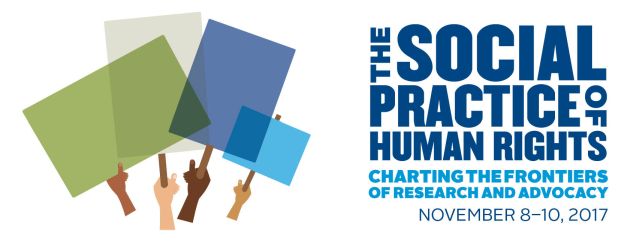
Paper/Proposal Title
Silenced Agency Gains a Voice?
Start Date
11-9-2017 10:30 AM
Keywords
Reparation, gender, sexual violence, survivor, agency
Abstract
Nearly twenty-three years since the Dayton Peace Accords ended the military violence in Bosnia and Herzegovina (Bosnia), the right to reparation for survivors of conflict-related sexual violence remains unrealized, as existing mechanisms for acquiring compensation and psycho-social services are gender-blind, decentralized, discriminatory, and nonexistent in parts of the country.
In 2012, the Bosnian government sought to begin remedying this broken system through the draft Programme for Victims of Wartime Rape, Sexual Abuse and Torture, and their Families (Programme). Today, the Programme remains stagnant as a draft policy, yet efforts by local and global actors to seek forms of reparation for survivors continue. This research analyzes the evolution of policy and programming efforts since 2012 and poses two central questions:
- Why does the Programme remain in a draft form?
- How have local and global actors sought to move forward?
Employing a feminist lens and findings primarily based on interviews, I advance a two-fold argument. First, three intersecting factors — the division of the country along ethnic lines, ethnonationalism, and patriarchal gender norms — serve as barriers to the finalization of the Programme. These barriers point to the salience of sexual violence to the military conflict, which obstructs policymaking and silences survivors’ agency. Second, despite this, through strengthened cooperation, local and global actors are maneuvering around these barriers via the development of new and improved policy ideas at the entity level of government, as well as through the creation of local NGO- and UN-led programming that strives to implement core goals of the Programme.
At its heart, this research paints a nuanced and survivor-focused picture of the dynamics involved in seeking forms of reparation for survivors. While the right to reparation remains on paper, recent local and global cooperation offers a way forward. As such, survivors may be gaining a voice in the public sphere.
Silenced Agency Gains a Voice?
Nearly twenty-three years since the Dayton Peace Accords ended the military violence in Bosnia and Herzegovina (Bosnia), the right to reparation for survivors of conflict-related sexual violence remains unrealized, as existing mechanisms for acquiring compensation and psycho-social services are gender-blind, decentralized, discriminatory, and nonexistent in parts of the country.
In 2012, the Bosnian government sought to begin remedying this broken system through the draft Programme for Victims of Wartime Rape, Sexual Abuse and Torture, and their Families (Programme). Today, the Programme remains stagnant as a draft policy, yet efforts by local and global actors to seek forms of reparation for survivors continue. This research analyzes the evolution of policy and programming efforts since 2012 and poses two central questions:
- Why does the Programme remain in a draft form?
- How have local and global actors sought to move forward?
Employing a feminist lens and findings primarily based on interviews, I advance a two-fold argument. First, three intersecting factors — the division of the country along ethnic lines, ethnonationalism, and patriarchal gender norms — serve as barriers to the finalization of the Programme. These barriers point to the salience of sexual violence to the military conflict, which obstructs policymaking and silences survivors’ agency. Second, despite this, through strengthened cooperation, local and global actors are maneuvering around these barriers via the development of new and improved policy ideas at the entity level of government, as well as through the creation of local NGO- and UN-led programming that strives to implement core goals of the Programme.
At its heart, this research paints a nuanced and survivor-focused picture of the dynamics involved in seeking forms of reparation for survivors. While the right to reparation remains on paper, recent local and global cooperation offers a way forward. As such, survivors may be gaining a voice in the public sphere.


